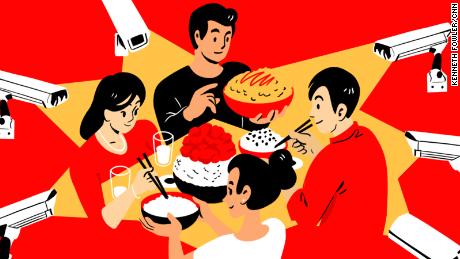Whatever china does, it has a strategy that
counts.
Chinese president, Xi Jinping announced that
he would reduce food waste. He feels that wasting food is a punishable offence.
The N-1 approach was also initiated keeping a
similar purpose in mind. It has imposed restrictions on food youtubers. Many
Chinese influencers are scared and have even started deleting videos on their
social media accounts.
Any new regulation in China is dealt with
utmost force and compliance. The Clean Plate movement set out with an objective
of minimizing wastage of food.
What
exactly is the ‘Clean Plate’ mission?
Operation Clean plate was first introduced in
2013 to curb food waste. They enforced it only on officials rather than the
general public at that time, high profile officers were also included in that
list.
According to the Chinese academy of sciences,
1.8 crores tons of food was wasted in China in 2015, which is almost as much as
feeding 5 crore people a year.
Speaking of a recent catering association
meeting held at Wuhan, Jinping proposed Operation clean plate 2.0 to reduce
food waste.
This time the common people were also made equally
liable. He said that the approach should be introduced in restraints. Those who
come to restaurants as a group should count one less member while ordering food.
Which means if 10 people were to order, only 9 should be counted.
The mission has also regulated the portion
sizes all over china, especially restaurants. Small portions are economical and
ensure little or no wastage and a study also proves that smaller portions at regular
intervals have significant health benefits.
Why was the mission introduced?
The Great Leap Forward policy was introduced
during Mao’s insistence on developing the country industrially.
As a result, food crops and plantations
suffered a great deal.
The fields lost their fertility due to large
scale industrialization, farmers lost interest in farming and those interested
were not able to recover their humongous losses.
Setting this as a precedent, it was decided
that China should never have to face such a famine, and in order to meet this
goal, they introduced stringent norms on industries along with mitigation and
stricter rules for anyone who wastes food.
Why has the mission re-emerged?
Many studies suggest that china may face a
food shortage in a couple of years.
China’s official newspaper, The Global Times,
has denied reports that wheat procurement in china has fallen by 20% so far
this year, when the real picture and agricultural reports show otherwise.
However, an additional 120 crore kg of grain
was harvested but many parts of the country are at risk of flooding this year.
According to ‘The Guardian’ food imports from
The United States fell sharply due to the trade war.
Imports, on the other hand, meet only 30% of
China’s food needs.
India and Vietnam imposed restrictions on
rice exports due to the Covid pandemic.
In short, China can rely on nobody but itself
for feeding its people. With the emergence of the pandemic, people have lost
their source of employment, making it very difficult for the government to feed
so many mouths out of its own pocket.
They had to introduce the Clean Plate Mission
again, so they can conserve every single grain, to be able to feed as many as
possible.
The government doesn’t want anyone to fall into the depths of despair especially at a time when all other countries have
turned their backs to China.
Is the food crisis permanent?
Forbes published an article before Chinese
President Xi Jinping’s announcement. It said, China is heading towards a food
crisis, with price of food grains rising unabatedly. Prices are bound to rise,
especially when there is pressure on supply.
The Yangtze river has been heavily flooded in
recent times. China produces heavy wheat. But in the first half of 2020 alone,
wheat imports were higher than ever in the last ten years. Maize prices, on the
other hand, have also risen sharply in China.
The sale of corn in China’s reserve in
tantamount to a cut in production.
In addition, china has been importing large
quantities of pork, soybeans, wheat, corn and stored food over the past few
months. If there is a food shortage in China, its impact is likely to be global.
The first priority of the Chinese government is
to head towards a nation with substantial food security, which is why Mission
Clean Plate has been set to work.
The food crisis is indeed at a peak, but if
the mission succeeds, it is bound to leave every single person of China with a
square meal and pull them out of starvation or the threat of a famine.
Written By - Keerthana Bharadwaj
Edited By - Tushna Choksey











0 Comments